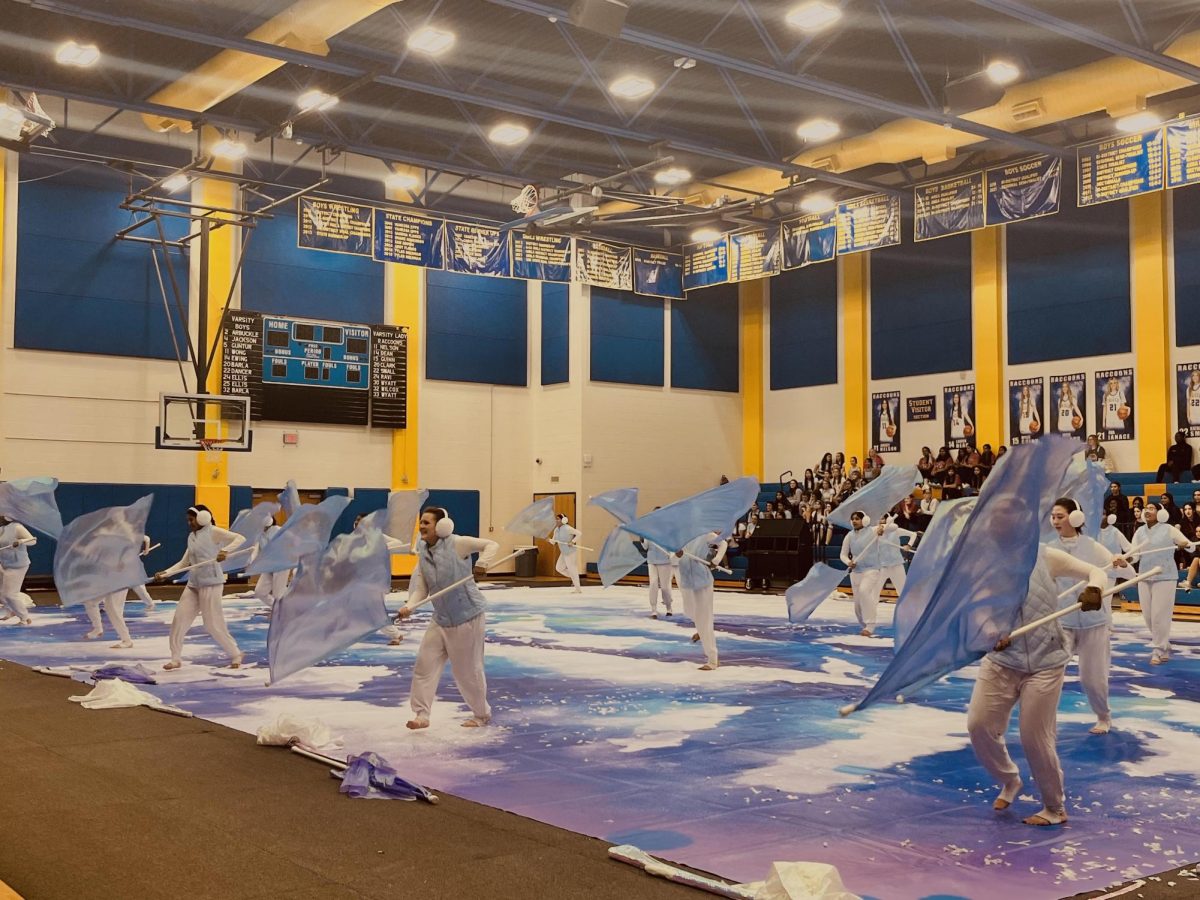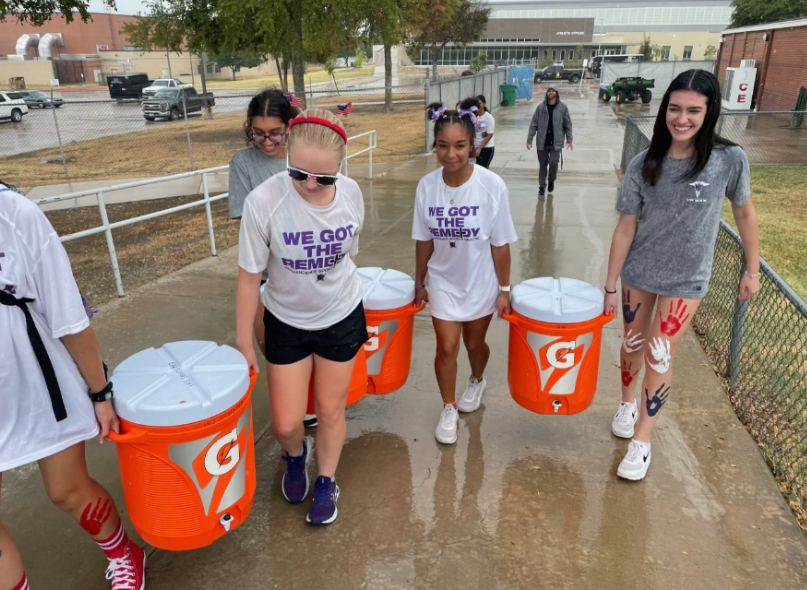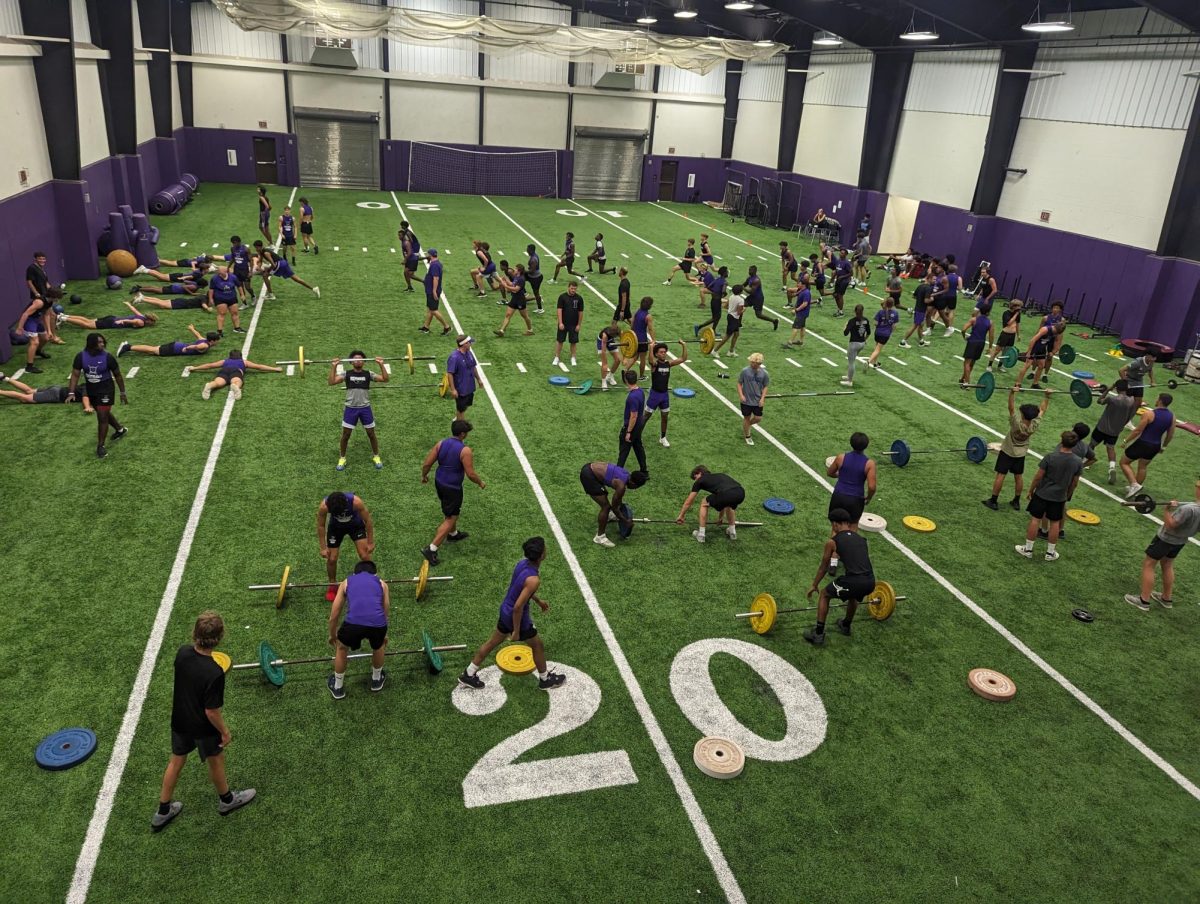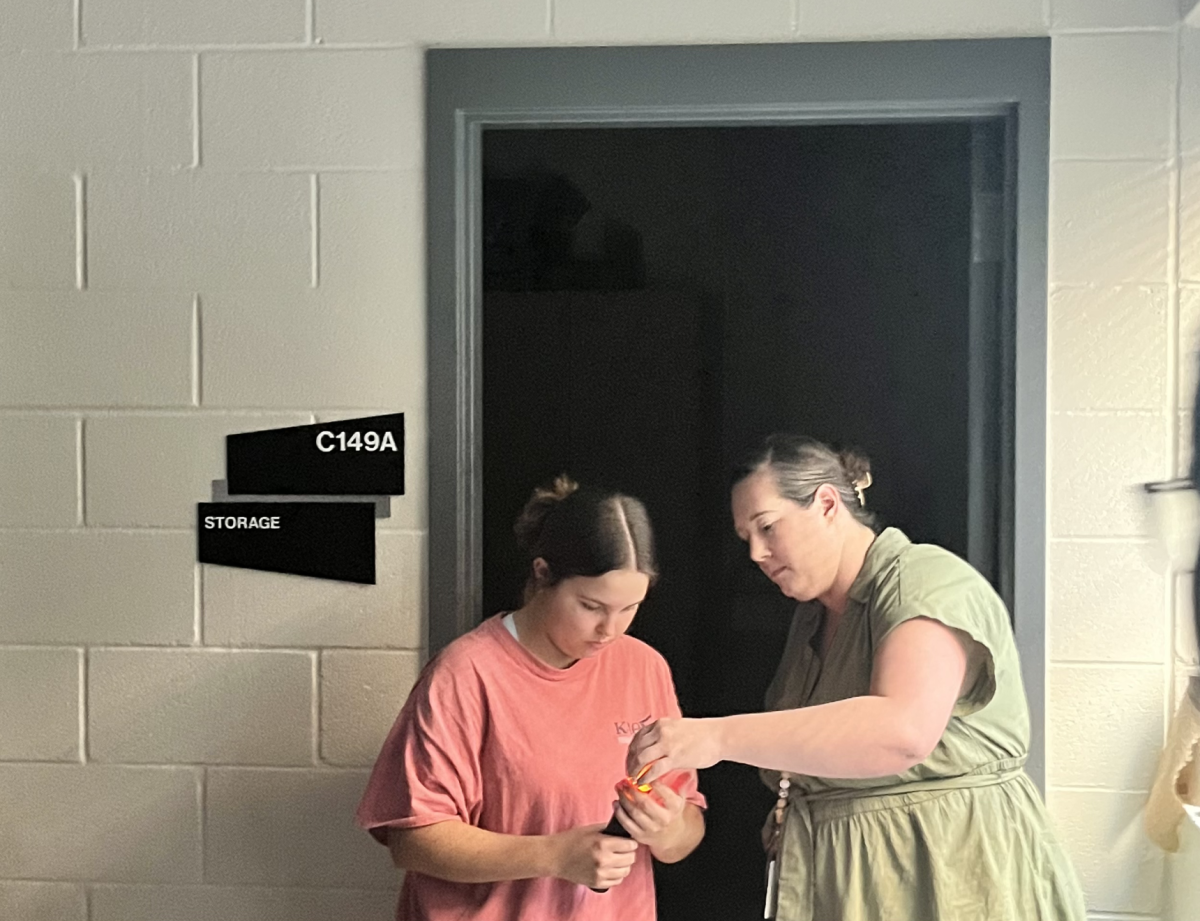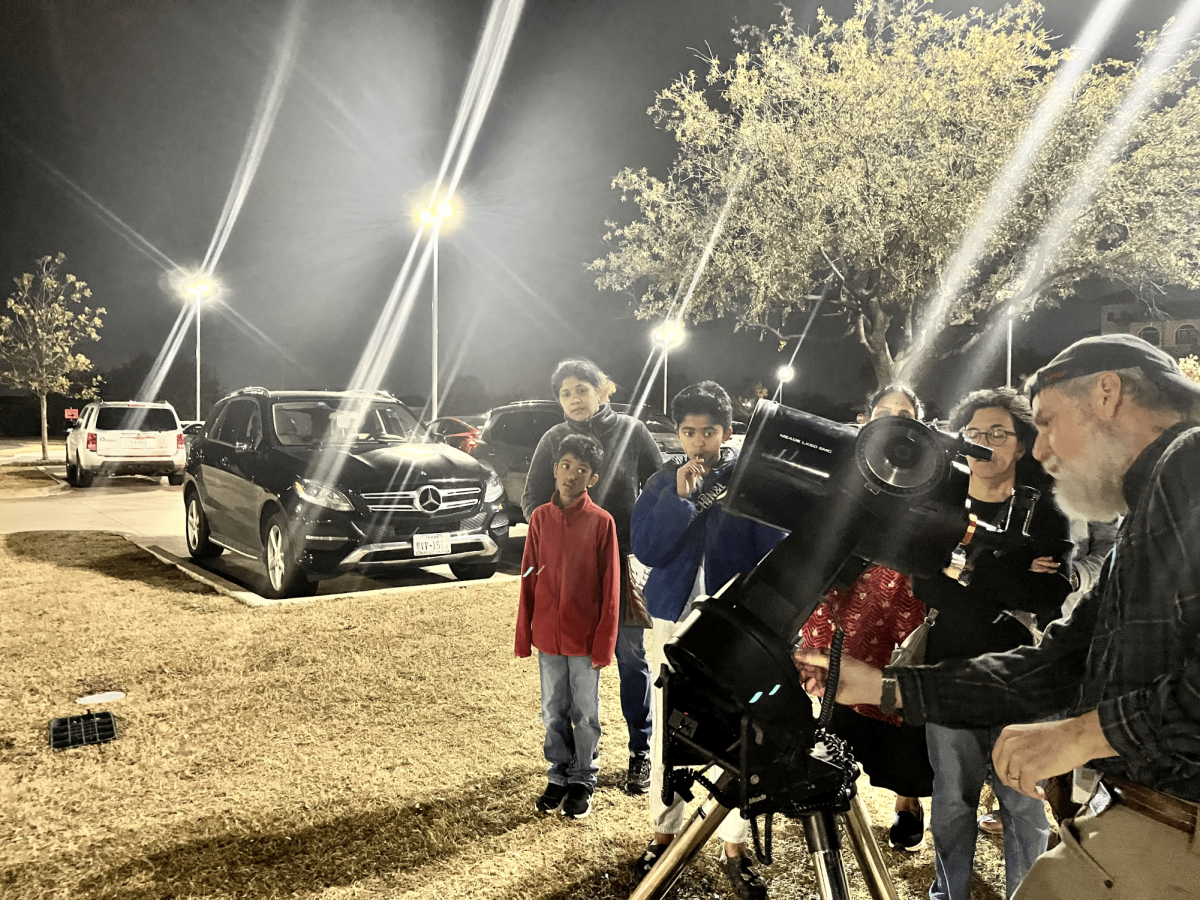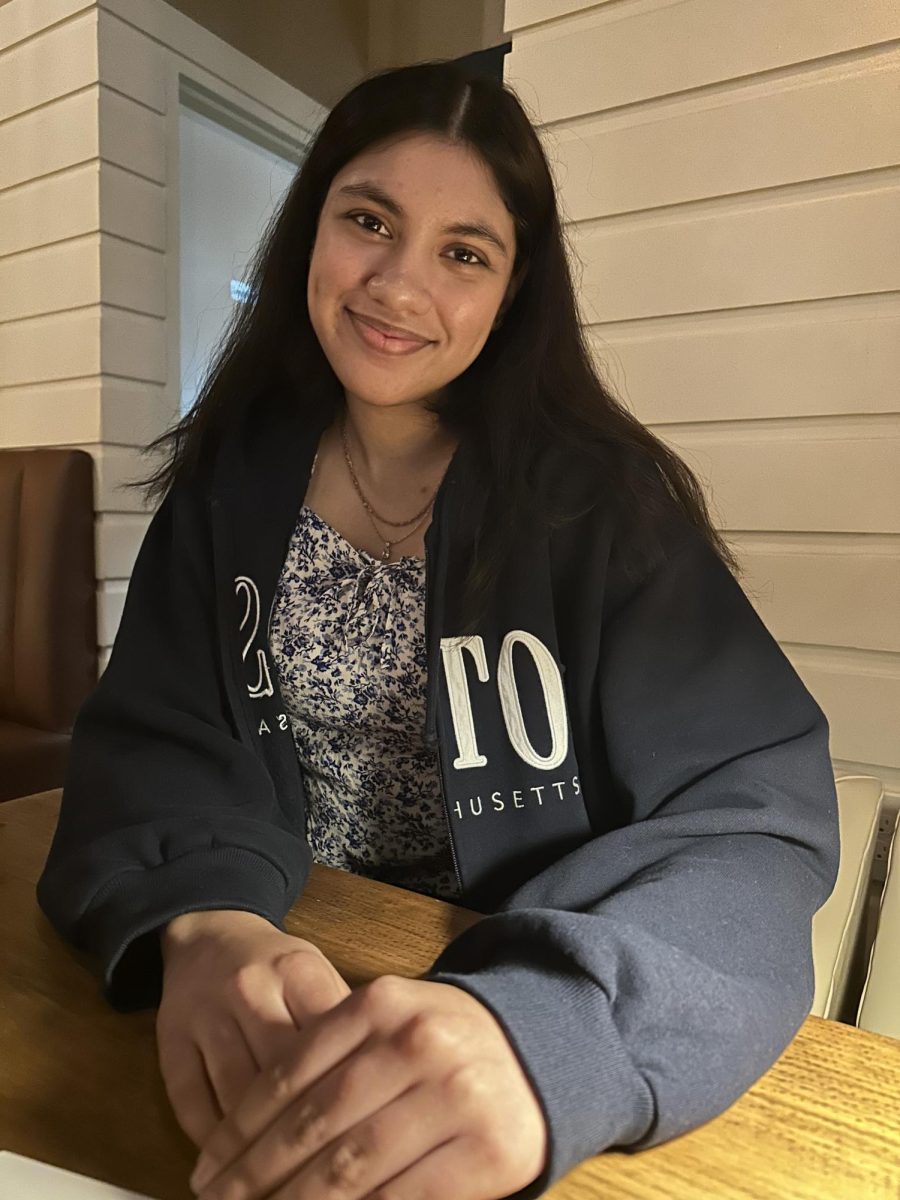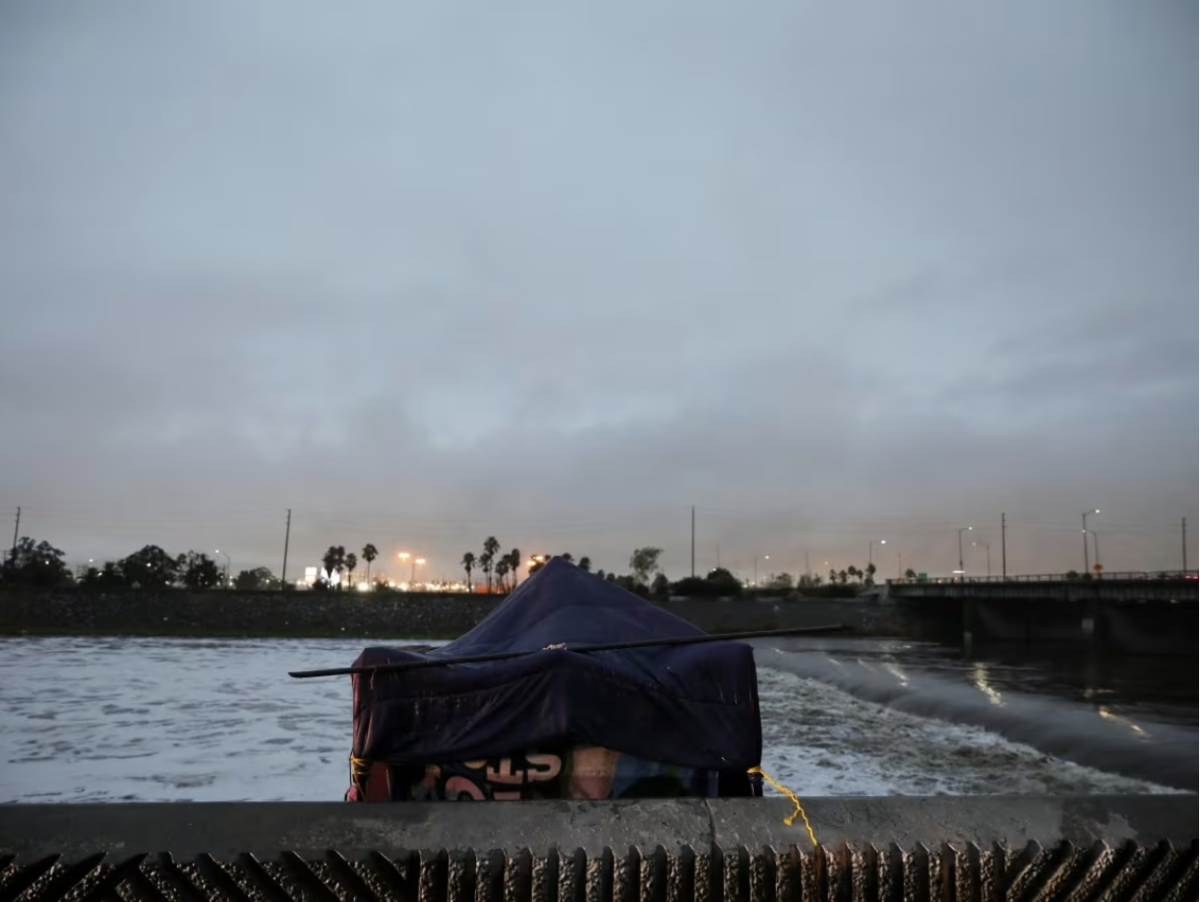Leaves crunch against your shoes. A cold wind blows through the air as you trek through the woods. You need to find shelter— and quick—to avoid the chill of the night.
You rack your brain, trying to remember the steps for finding a place to stay, to no avail. Were you supposed to set up camp on high or low ground? By a river, or closer to the trees? And how exactly does one set up a tent?
Fortunately, the Outdoor Education class at IHS covers these scenarios and more, providing the knowledge to explore the wilderness safely.
Taught by Colt Klipfel, the class enables students to learn various survival skills, ranging from hunting to building fires. These skills are accomplished through a combination of tests and practical labs. After certain units, students earn certification for their skills through the Texas Parks and Wildlife Department, where they obtain boating and hunting licenses.

“Outdoor Education’s goal is to enlighten the students about what nature has to offer and how they can play a positive role within the preservation and conservation of our wildlife here in Texas and across the U.S,” Klipfel, in his sixth year of teaching the class, said. “We work hand in hand with the Texas Parks and Wildlife Department to help sustain knowledgeable outdoorsmen [and] women.”
The class offers a unique alternative for students to fulfill their physical education credit, as opposed to playing a sport or taking the general gym course. When students first enter the class, they walk a mile outside before returning to learn about the latest topic. Sometimes, Klipfel incorporates a ‘relate break,’ a classwide discussion of various life skills, such as finances, health and wellness, career paths, and more. At the end of each unit, students practice the practical portion of the topic, including building a garden or collecting water.
“I’ve actually learned a lot of stuff that I didn’t [expect to],” Rutu Pandya, a sophomore in the class, said. “I’m not the most ‘outdoorsy’ person, but ever since joining this class, I want to go camping to show my family [the skills I’ve gained]. [We focus on major skills,] like learning how to camp or build a fire [along with] little things like letting people know [where] you’re going, or checking the weather.”
The skills that students learn are applicable in real-life situations. In fact, in Feb. 2021, Texas experienced one of the coldest winter storms ever recorded, which many dubbed ‘Snowmageddon,’ where many portions of the state lost power. During this time, students used the class’ content to their advantage.
“Our class is a very “hands-on” class, and the skillsets learned throughout the various units will be utilized for a lifetime,” Klipfel said. “‘Snowmageddon’ was an opportunity where students from my class got to utilize their skills of how to [safely] build a fire within their homes in order to keep [themselves] warm. [Beyond survival], we also teach our students [life skills, including] how to change a tire. Things like this will stick with students beyond the walls of IHS.”
Certificates play an important role in the class. To obtain their certification, students complete and pass a state-mandated test, run by the Texas Parks and Wildlife Department.

“Students that receive these ‘safety’ cards are legally able to hunt, fish, and boat on their own once they have reached legal age,” Klipfel said. “These same certificates are mandatory for all individuals to obtain in order to perform/participate in most of these activities as well. [For example], you are legally not permitted to hunt on your own without the reception of your “hunter safety card.”
Beyond survival skills, students learn about the diversity of local parks and nature.
“We did this project on national and state parks [earlier this year], ” Hanumikaa Pandian, a freshman in the class, said. “There were a bunch of new parks I [didn’t] even know about, and half of them are in Texas. A bunch of groups were presenting and I thought that was really cool.”
On a larger scale, the class emphasizes environmental conservation. When taking their mile walks, students are encouraged to pick up the trash they see.
“[I’ve learned a lot about] mindfulness and [the interconnectedness] of nature [with] how the things you do have an impact on [the environment],” Vrishank Erukulla, a freshman in the class, said. “When you make a fire, you have to clear the areas [to prevent a] forest fire. Little things that you do when you go outside will [have a large effect].”
Ultimately, students in the class feel that the knowledge they gain will benefit them in the future.
“For the people who aren’t into athletics as much, this is a great way to get some of that same experience,” Erukulla said. “[Whether] that’s the physical education credit, or just building a connection with the outdoors, [because] it enables you to learn things you didn’t know before. It’s pretty cool, [as well as] important, and I think it’s something that people should be more aware of.”


